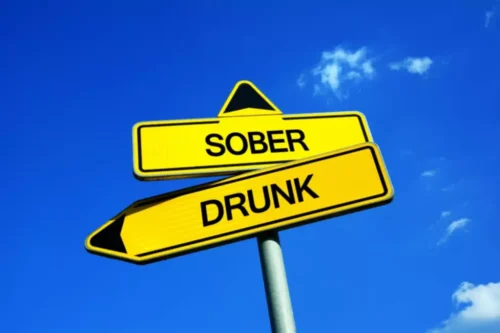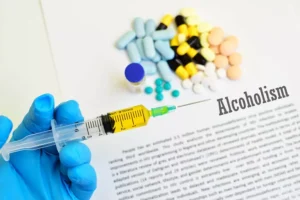
You still have your “shit” to deal with, and maybe that never ends because, well, life. I’m no longer a self-absorbed, sad woman drinking herself into being sober sucks oblivion every night. One of the most difficult lessons of sobriety, especially for the stubborn among us, is that you probably can’t do it alone.
Emily Witt’s new book is both a chronicle of rave culture and a capsule of recent political history.
A reputable treatment program provides these specialists. Loving and encouraging family and friends can definitely help support your journey to become sober. As with most problems, the solution is as difficult or as simple as we make it. Sometimes, consider how your behavior has affected others. Or maybe those crotchety old-timers like to complain about life. Or the newcomer has unrealistic expectations and judges others unfairly.
Quality sober folk
- I’d also like to take this time to emphasize just how important a sense of community is in sobriety, no matter what that looks like.
- And so then I could let out whatever it was that I was trying to manage and see if maybe it served some purpose in my life.
- When you commit to sobriety, you can actually solve your problems instead of ignoring them.
- For example, a Veteran with post-traumatic stress disorder (PTSD) who misuses cocaine, doesn’t have the same needs as a stay-at-home mom struggling with alcohol use.
- I recharge when I’m by myself, and I deplete when I’m with others—especially big groups.
When I moved abroad, I didn’t hear from many of them unless I initiated a conversation. Part of my sobriety journey involves forgiving myself for being a truly atrocious and high-maintenance friend to some pretty amazing people. Sobriety forces you to rewrite your personal history. To take responsibility for your role in the darker periods of your life.

Getting Drunk Alone: When Is It A Problem?
- It’s much easier to stay financially fit when you’re sober.
- When you choose to go to the gym or take a cooking class, you’re signaling that you are open to seeing what else this life has to offer.
- Your world is not going to transform completely in three months.
- It’s important to develop a structured daily and weekly schedule and stick to it.
- Reported writing can be useful — it’s important — but it’s not the thing you turn to when you want to remember what it felt like or when you’re trying to process what happened.
- You can then consistently look back, see how far you’ve come, and assess what you have accomplished along the way.
Re-evaluating your relationships with other people is part of the process. By the end of my drinking days, it was a wonder to me that I could do anything. That’s just the nature of existence – there are ups and downs on the rollercoaster. The point is to make the most of the ride. Yes, I no longer have the option of using a substance to escape my feelings or problems. But because of that, I have learned to actually DEAL with them instead.
I would tell you, but now that I’m not always right all the time anymore, I’d just be guessing.
There are zero alcohol-related regrets plaguing my life right now. Friendships can be tricky things in early sobriety, especially when all of your friends are drinking buddies. The ability to think, read a book, engage in an intelligent conversation, actually have IDEAS again, and not just loop terrible thoughts on autopilot in your brain is liberating.

We gotta find new avenues to channel our energy and work out our stuff. My past relapses were largely fueled by sobriety’s inability to solve my problems for me. Instead of reaching out for help, giving AA a shot, or opening up to friends and family, I tried to Google my way to emotional stability.

To get better, you have to change.
I’m left with a lot of sadness which meditation and MBSR doesn’t seem to address and which alcohol at least masked for me. I’m not going back to drinking but am looking for ideas on how to move forward. Why do people, who have been sober for years, behave inappropriately with alarming regularity? Recently, I was asked this question in group therapy (the exact words have been edited as they were not fit to print). The person who posed the question felt she had been misled.

They don’t even know if it works until they try to fertilize them. And then, when I was working, I’d have to pretend to be culturally legitimate to these really right-wing people I ended up interviewing. I mean, it was really hard to figure out what to say about certain things. We spoke about the purpose of journalism, turning 40, and what it feels like to be on the verge of another Trump presidency.

Or all the “Don’t forget to have a baby” discourse. I wrote this book as I was processing 40 and the end of any kind of girlish dream that I was going to have a nuclear family, basically. What were your relationships with your sort-of-normie https://ecosoberhouse.com/ friends like during that time? Did you feel like you were pulling away from them? I left New York for a long time in my 20s, but the social scene of writers when I first got to New York, in 2003, was pretty misogynist.
Surprising Benefits of Sobriety That Will Transform Your Life
It’s one of the best benefits of sobriety I’ve experienced. This one happened for me relatively early on, and that’s WITH pregnancy brain. It is an incredible feeling to have that fog lift. You quite literally feel like a brand new person. New Life House has helped young men stay sober for over 35 years. We came from very humble beginnings, and would love to tell you our story of success and recovery.